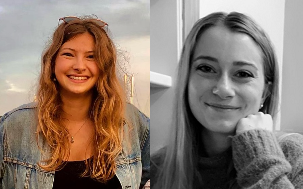Abstract:
Carbon is the element which is present in all forms of life on earth. It moves through planet earths many spheres, taking on new forms as it passes from one environment to the next. In air, carbon can take the inorganic form of CO2, which is taken up by plants through photosynthesis. There it finds it way into the soil, taking on the form of different Soil Organic Matter. Here it can be used as energy source through heterotrophic respiration, or it can be washed away with water into ponds, lakes and ultimately coastal areas and the ocean. Carbon can be released back into the atmosphere throughout the carbon cycle as both methane and CO2. These processes are fine-tuned, creating, relying on, and upholding the conditions for life as we know it, and flourish under.
However, the balance of this natural cycle is disturbed by the continuing rise of greenhouse gas emissions and the related feedback mechanisms leading to ongoing global warming. Those climatic changes are threatening to trigger critical tipping points, which could irreversibly shift the climate. Knowledge gaps on tipping points across the whole earth system, including terrestrial, oceanic & cryosphere, and atmospheric processes, limit the accuracy of robust climate predictions. In the boreal biome, climate change causes changes in precipitation, growing forest biomass, and thawing of permafrost soil – all this increases the risk of mobilizing soil organic carbon, possibly enhancing GHG emissions, and thus perturbations on the entire carbon cycle.
Through the project BioGov, we aim to follow carbon as it cycles through different environments, which are currently changing following global warming. We examine how one of the main terrestrial carbon storages – boreal soils, and more specific: soil organic matter -varies under climate change. This includes microbial and geochemical processes in the C cycle, the transport of carbon from land to water at different spatial and temporal scales, and the identification of key organic matter fluxes and processes. The overreaching aim of the Biogov project is to get a glimpse into the future of the carbon cycle – by improving climate predictions using earth system modeling.
